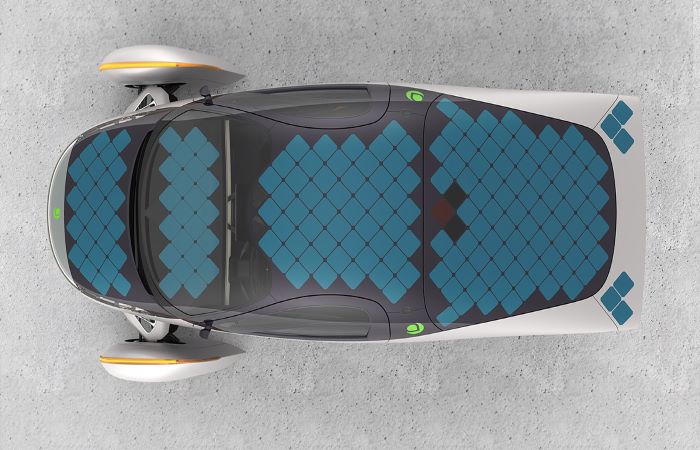California-based Aptera Motors has launched its new electric car, the Paradigm, that it claims does not need to be recharged. The claim has been derived from the car’s embedded solar panels that cover a surface area of roughly 3 sqm, which Aptera claimed are enough to add 45 miles of driving range to the Paradigm’s 100kW battery pack “in most regions”. Fully charged, the car is rated to drive 1,609km (1,00 miles), and even though the solar panels don’t charge the car while in motion, the car can be parked out in the sun for its batteries to be topped up. The Paradigm’s coefficient of drag (its resistance to wind while in motion) is also an impressive 0.13 — compared to the Tesla Model 3’s 0.23, which in itself is much better than its competitors’.
The car is slated to be launched in the US market in 2021, but can be reserved by eager first adopters for a down payment of $100.
Battery costs fall to $110/kWh, very close to “tipping point” of $100/kWh
Market intelligence firm Benchmark Mineral Intelligence (BMI) has reported that the cost of li-ion EV batteries has fallen to $110/kWh — which is very close to the industry’s often talked about “tipping point” of $100/kWh. The cost has fallen from $1,100/kWh in 2010 to $156/kWh in 2019. The development brings the EV industry very close to the $100/kWh cost barrier, below which it would reportedly be cheaper to manufacture electric vehicles instead of IC engined-units. The threshold has been referred to by Tesla as well in its quest to make EVs the dominant form of consumer transport, although some analysts expect the barrier to be breached only in 2023.
Tata delivers 26 of 340 electric buses to BEST
Tata Motors has delivered 26 of its 340 Tata Urban 9/12m electric buses to Brihanmumbai Electricity Supply and Transport (BEST) — Mumbai’s bus transport provider — as part of the latter’s expansion of its electric bus fleet. Tata Motors will also undertake the setting up of all charging infrastructure for the buses across four of the city’s depots: Shivaji Nagar, Worli, Malvani and Backbay. The buses are equipped with on-board wifi, regenerative braking and a specially designed lowering mechanism for passengers with special needs.
UK opens first of 100 GRIDSERVE charging stations
UK-based GRIDSERVE has formally opened its first EV charging forecourt in Essex, which will be one of the 100 it will unveil across the UK in five years. The forecourt can charge up to 36 EVs at the same time with its 350kW fast chargers, and is powered by both solar rooftops and solar farms in close proximity. The facility will also let users lease EVs manufactured by most major automakers, such as Mercedez, BMW and Renault, and pay for the usage as part of a monthly payment, which GRIDSERVE claims will lower their (already low) effective cost of charging an EV by 40%.
About The Author
You may also like
New report shows ways to build an efficient e-bus ecosystem in India
Corporate watchdog accuses Toyota of misleading marketing, greenwashing
Electrifying India’s Roads: Financing EVs – Challenges, Progress and the Road Ahead
Five lithium and cobalt mines identified in overseas exploration
India approves $7 billion plan for 10,000 electric buses in 169 cities in next 10 years


